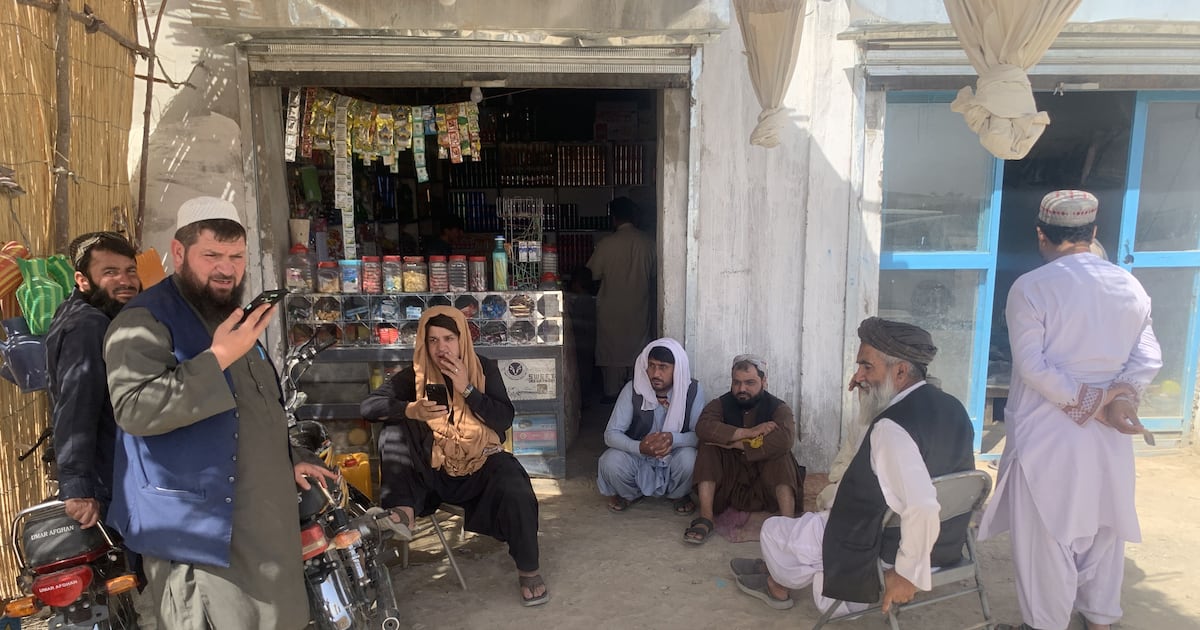World
Internet Shutdown Grounds Flights in Afghanistan, Leaving Many Stranded

Flights at Kabul airport faced significant disruptions on Wednesday, August 23, 2023, as a sweeping internet blackout left many passengers stranded. According to data from flight-tracking service Flightradar24, out of 34 scheduled flights, four departures and ten arrivals were cancelled, while the status of the remaining flights remained unclear.
The crisis stems from the Taliban administration’s directive on Monday to cut internet and cell phone connections across Afghanistan. This sudden move has caused chaos, affecting banks, aid organizations, businesses, and the ability of Afghans to communicate with family and friends. The lack of connectivity has not only hindered domestic travel but also left many people unable to access essential services.
Reports indicate that the Taliban has not provided a clear explanation for the blackout. The United Nations has since called for the immediate restoration of services. In recent weeks, the Taliban expressed concerns about online content, citing morality issues as a justification for reducing internet services.
The impact of the shutdown was stark. On Tuesday, ten out of 31 scheduled flights were cancelled, and the status of 21 flights was marked “unknown.” Flights from other provincial airports, including Herat and Kandahar, also faced similar uncertainties.
Mohammad Bashir, a representative of Kam Air, Afghanistan’s domestic and international airline, described the situation to Tolo News, stating that only one flight had operated since the internet blackout began. He emphasized the necessity of sharing flight information online with destination airports before takeoff, a process rendered impossible by the lack of internet connectivity.
“We must restart operations for their sake,” Mr. Bashir said, referring to stranded passengers with transit flights and those attempting to return home. A local cell phone service provider, wishing to remain anonymous, mentioned that they were collaborating with other companies to navigate the complex situation. “We hope that all telecommunications providers in the country will be authorized to recommence services as soon as possible,” the representative stated.
According to NetBlocks, an international internet access monitoring organization, connectivity in Afghanistan plummeted to about 1 percent earlier this week. The cuts were implemented in phases, with the final stage impacting telephone services that share infrastructure with the internet.
Private media outlet Tolo News warned its viewers of potential service disruptions and reported a one-week deadline set by authorities to shut down 3G and 4G services for mobile phones, leaving only 2G functionality active. Additionally, the shutdown has affected operations at private banks and the central bank, while Kabul’s currency market continued functioning based on exchange rates from the previous day.
The situation remains fluid, with many Afghans hoping for a swift resolution to the connectivity issues. As authorities work to manage the fallout from this drastic action, the implications for daily life in Afghanistan are significant, highlighting the critical role of internet access in modern society.
-

 Top Stories3 months ago
Top Stories3 months agoTributes Surge for 9-Year-Old Leon Briody After Cancer Battle
-

 Entertainment4 months ago
Entertainment4 months agoAimee Osbourne Joins Family for Emotional Tribute to Ozzy
-

 Politics4 months ago
Politics4 months agoDanny Healy-Rae Considers Complaint After Altercation with Garda
-

 Top Stories4 months ago
Top Stories4 months agoIreland Enjoys Summer Heat as Hurricane Erin Approaches Atlantic
-

 World5 months ago
World5 months agoHawaii Commemorates 80 Years Since Hiroshima Bombing with Ceremony
-

 Top Stories3 months ago
Top Stories3 months agoNewcastle West Woman Patricia Foley Found Safe After Urgent Search
-

 Top Stories5 months ago
Top Stories5 months agoFianna Fáil TDs Urgently Consider Maire Geoghegan-Quinn for Presidency
-

 World5 months ago
World5 months agoCouple Convicted of Murdering Two-Year-Old Grandson in Wales
-

 World5 months ago
World5 months agoGaza Aid Distribution Tragedy: 20 Killed Amid Ongoing Violence
-

 World5 months ago
World5 months agoAristocrat Constance Marten and Partner Convicted of Infant Murder
-

 Top Stories4 months ago
Top Stories4 months agoClimbing Errigal: A Must-Do Summer Adventure in Donegal
-

 Top Stories4 months ago
Top Stories4 months agoHike Donegal’s Errigal Mountain NOW for Unforgettable Summer Views









